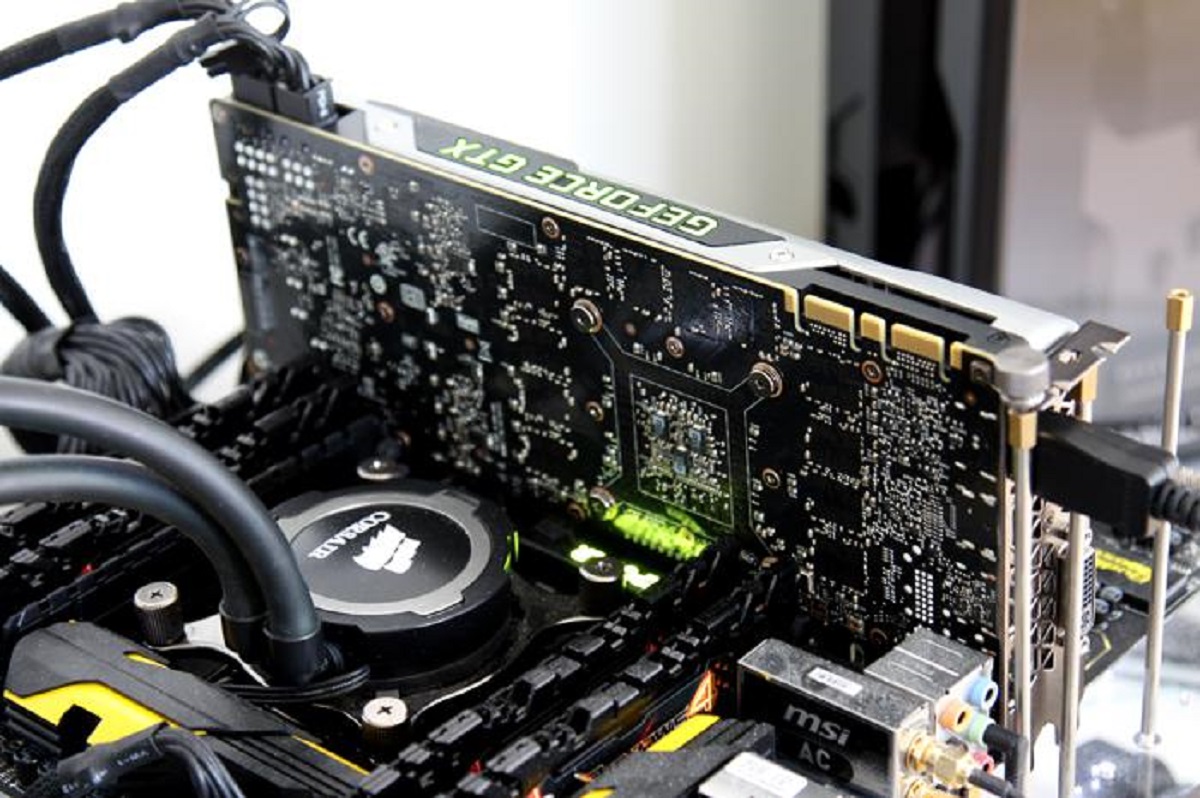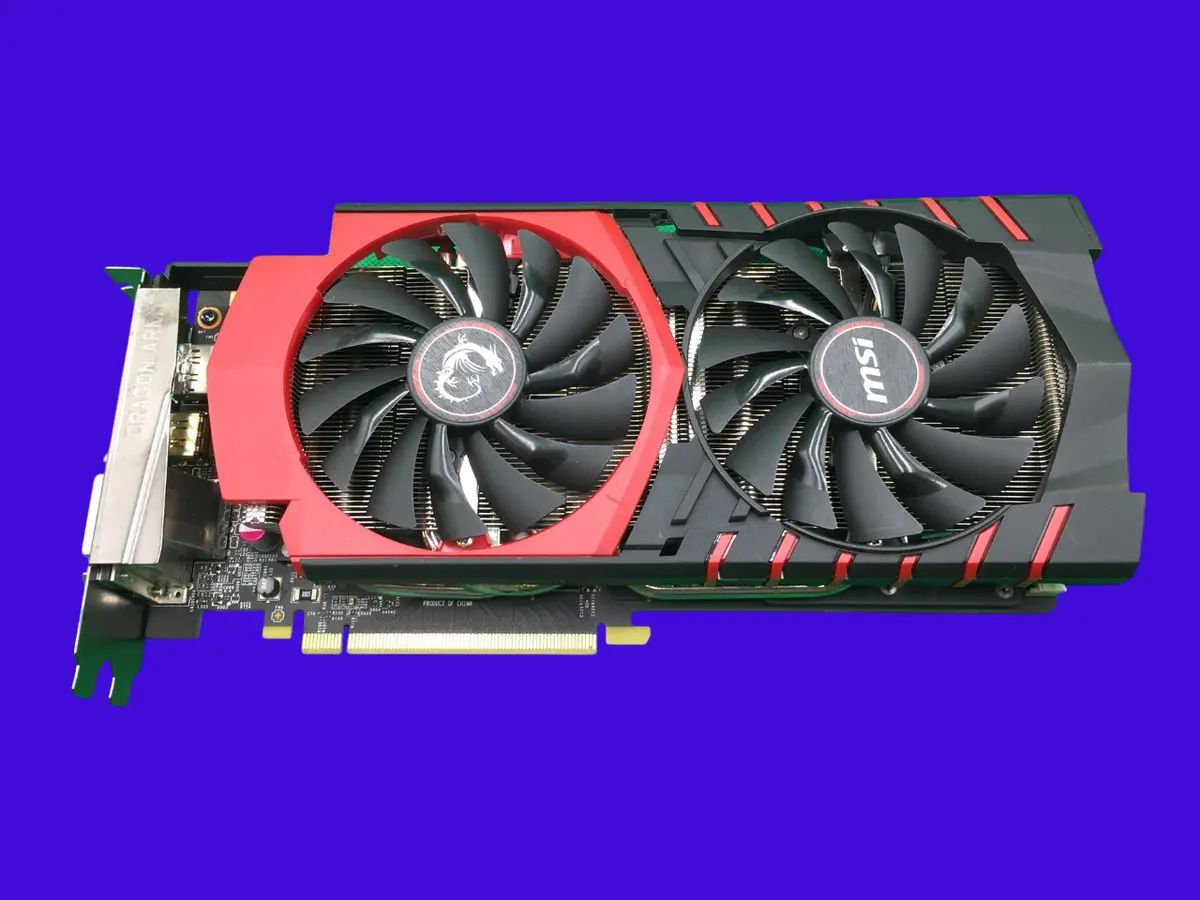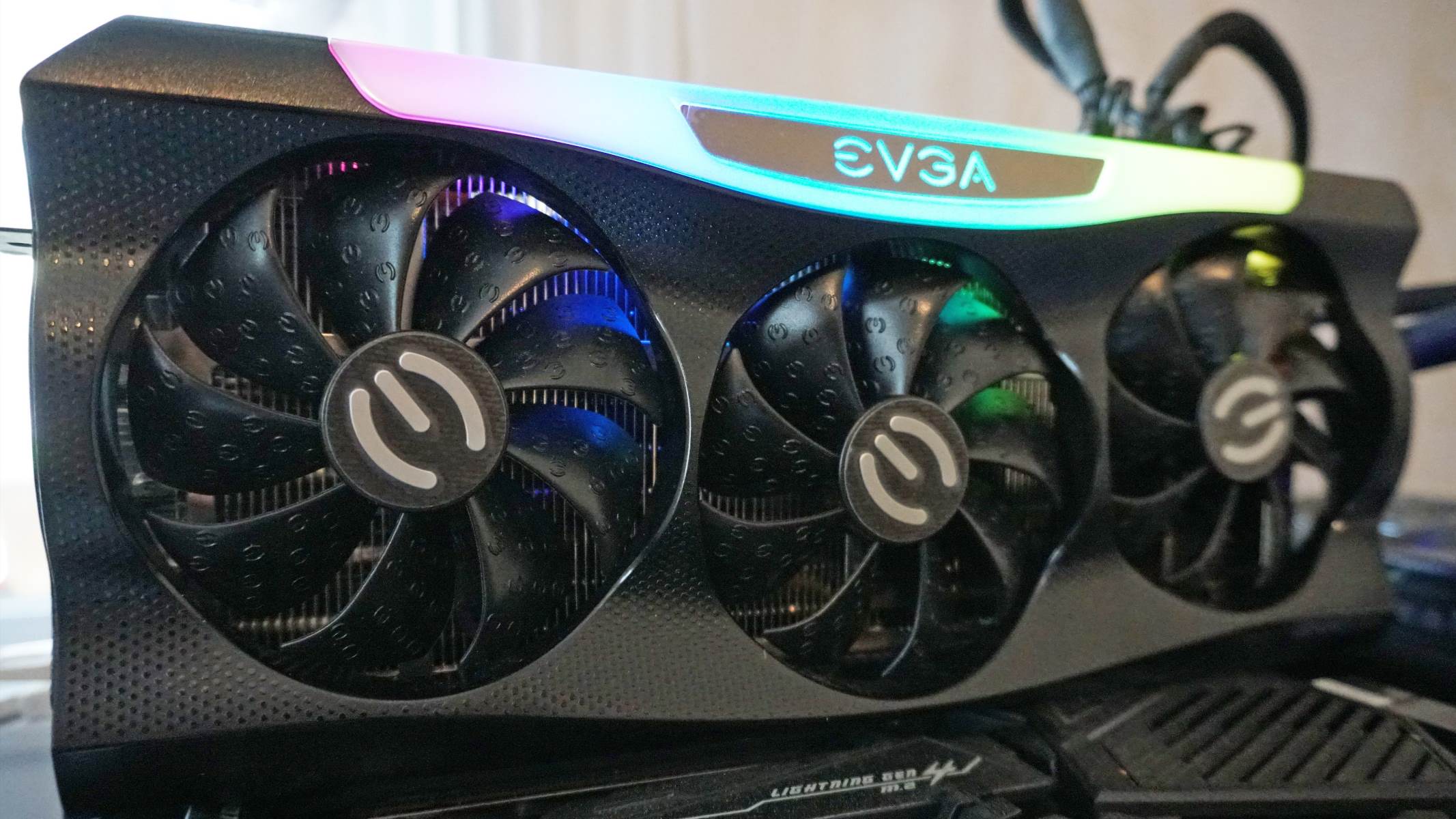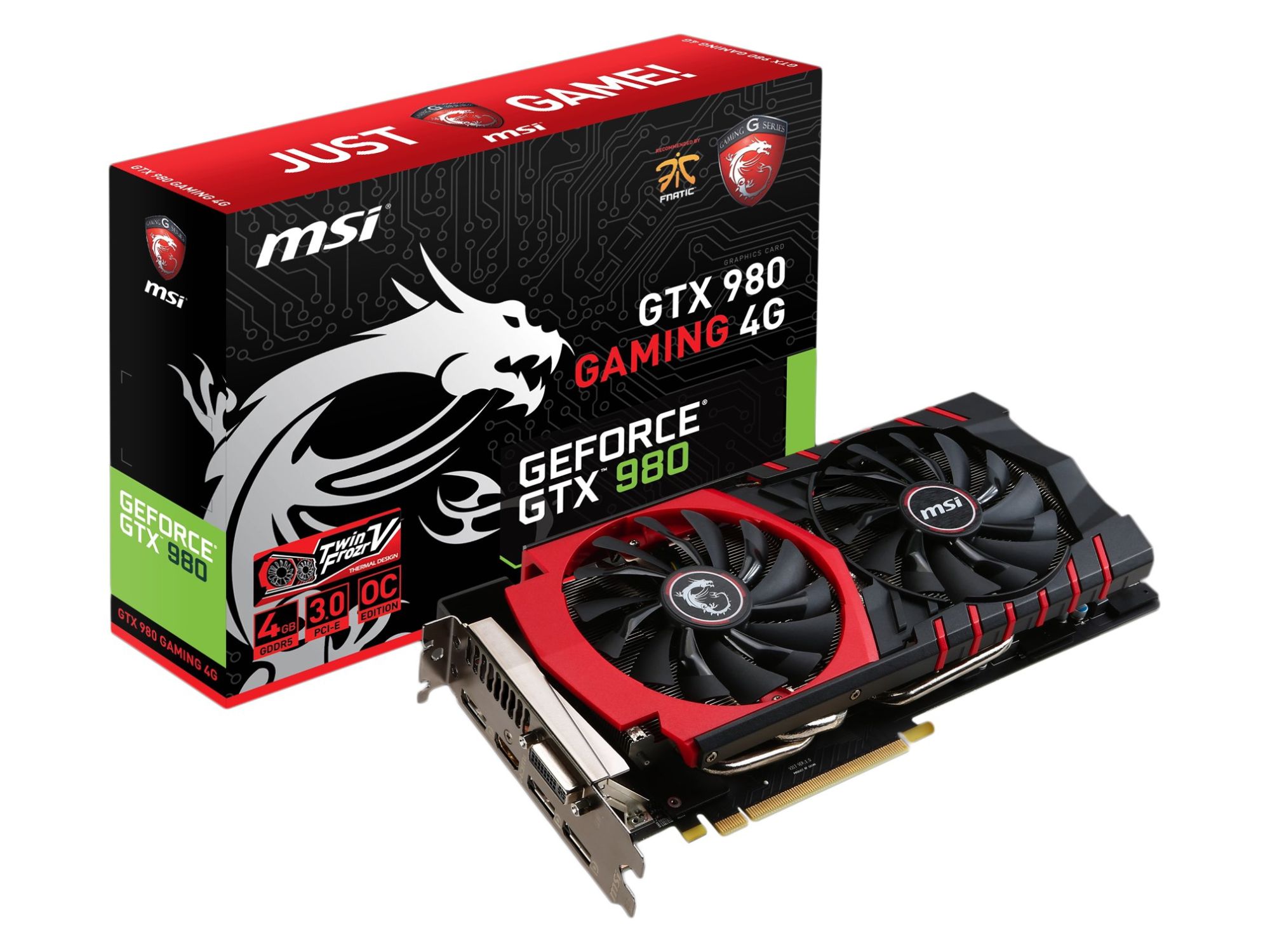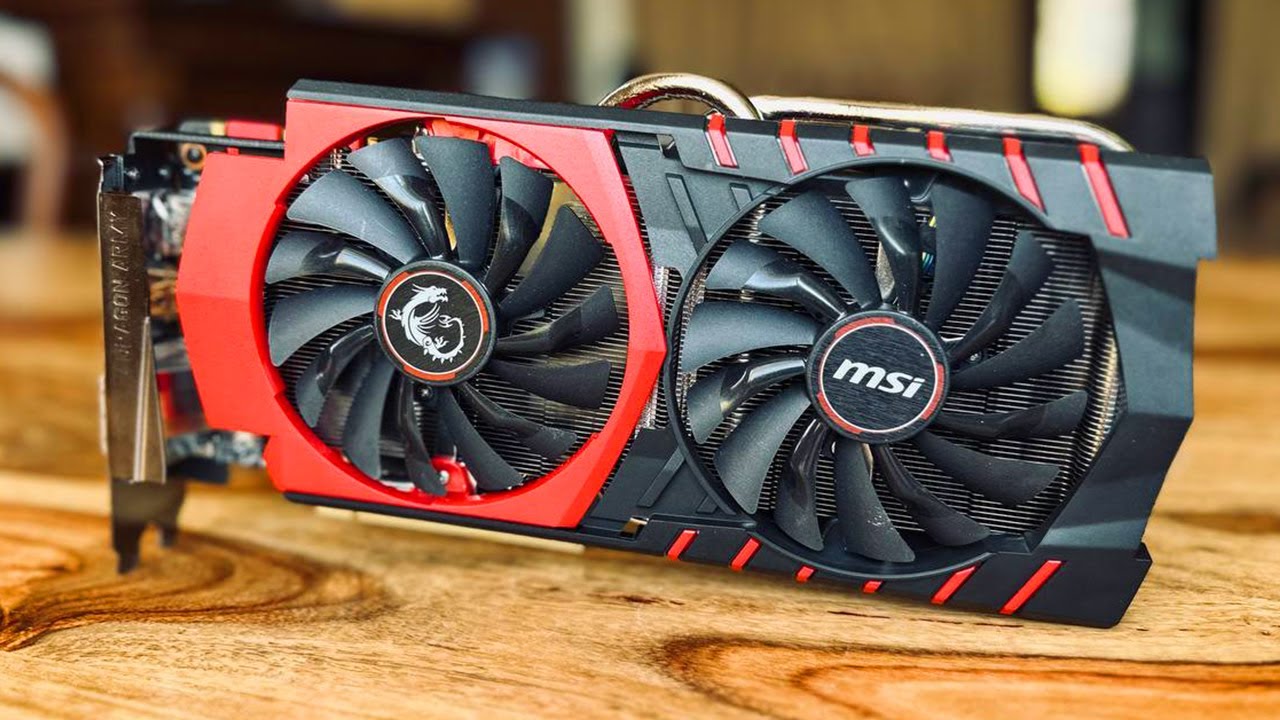Introduction
When it comes to building a high-performance computer, one of the most crucial components to consider is the power supply unit (PSU). The PSU ensures that all the components of your computer receive a reliable and steady flow of power, keeping them running smoothly and preventing any potential damage.
In this article, we will be focusing on the power supply requirements for the GTX 980 Ti, a powerful graphics processing unit (GPU) commonly used by gamers and professionals who demand top-tier performance. Understanding the specific PSU requirements for this graphics card is essential to ensure optimal performance while avoiding potential issues such as system instability or component damage.
By the end of this article, you will have a clear understanding of the factors to consider when selecting a PSU for your GTX 980 Ti, including power efficiency, wattage requirements, and whether a modular or non-modular PSU is the best choice for your needs.
So, if you’re wondering, “What PSU do I need for my GTX 980 Ti?” Strap in, and let’s dive into the world of power supplies and graphics card compatibility.
Understanding Power Supply Unit (PSU)
Before delving into the specific requirements for a PSU to power a GTX 980 Ti, let’s start with a basic understanding of what a power supply unit is and its function in a computer system.
A power supply unit is an essential component of the computer that converts the alternating current (AC) from your electrical outlet into direct current (DC) needed by the computer’s internal components. It regulates and distributes power to different hardware components, such as the motherboard, CPU, GPU, hard drives, and peripherals.
The PSU’s role is to provide a reliable and steady power supply, ensuring that each component receives the appropriate amount of power and voltage. A high-quality PSU will protect your computer components from sudden power surges and fluctuations, helping to prolong the lifespan of your system.
PSUs come in various wattages, sizes, and form factors, designed to fit different computer builds. They are typically rated in terms of efficiency, with higher-efficiency PSUs being more environmentally friendly and cost-effective over time.
It’s important to note that not all power supplies are created equal. Lower-quality PSUs may not provide a stable and consistent power flow, which can result in system crashes, component failures, or even permanent damage to your computer.
When selecting a power supply for your GTX 980 Ti, it is essential to choose a high-quality unit that meets the necessary power requirements and provides stable and efficient power delivery.
In the next section, we will explore the specific factors to consider when choosing a power supply unit for your GTX 980 Ti graphics card, ensuring optimal performance and longevity for your system.
Factors to Consider for GTX 980 Ti
When selecting a power supply unit (PSU) for your GTX 980 Ti graphics card, there are several important factors to take into consideration to ensure compatibility, stability, and optimal performance.
Power consumption: The GTX 980 Ti is a high-performance graphics card that requires a substantial amount of power to operate. It is crucial to choose a PSU with adequate wattage to meet the power demands of the GPU. The power consumption of the GTX 980 Ti can vary depending on factors such as overclocking and the number of additional components in your system.
Power efficiency: Opting for a power supply with high efficiency can save you money in the long run and contribute to a more sustainable computing setup. PSUs with higher efficiency ratings, such as 80 Plus Bronze, Silver, Gold, or Titanium, waste less power as heat and convert more of it into usable energy. This not only reduces electricity consumption but also results in lower operating temperatures and quieter operation.
Modular vs. non-modular: PSUs come in modular and non-modular variations. A modular PSU allows you to detach and connect cables as needed, reducing cable clutter and improving airflow in your case. On the other hand, non-modular PSUs come with fixed cables, which can make cable management more challenging. Consider your build’s cable management needs and preferences when choosing between modular and non-modular PSUs.
Brand and quality: Investing in a reputable brand and high-quality PSU is crucial for the long-term stability and reliability of your system. Well-known brands often provide better warranties and have a proven track record of producing reliable and efficient power supplies. Be sure to read reviews and check the manufacturer’s reputation before making a purchase.
Connectors and compatibility: Ensure that the PSU you select has the necessary connectors to power your GTX 980 Ti and other components in your system. Common connectors needed for a high-end GPU like the GTX 980 Ti include PCIe connectors for the graphics card and SATA connectors for storage drives.
Consider these factors when selecting a PSU for your GTX 980 Ti to ensure that you have a stable and efficient power supply that can handle the demands of your high-performance graphics card.
GPU Power Consumption
One of the primary factors to consider when choosing a power supply unit (PSU) for your GTX 980 Ti graphics card is the GPU’s power consumption. The power consumption of the GPU can have a significant impact on the overall wattage requirements and the stability of your system.
The GTX 980 Ti is a powerful graphics card known for its high-performance capabilities. As a result, it requires a substantial amount of power to operate optimally. The power consumption of the GTX 980 Ti can vary depending on several factors, including the specific model, overclocking settings, and the intensity of the applications or games you are running.
Official specifications provided by the manufacturer, such as NVIDIA, often indicate the maximum power consumption or a recommended power supply wattage for the GPU. These specifications can serve as a useful starting point when selecting a PSU for your GTX 980 Ti.
However, it’s crucial to keep in mind that these specifications represent the GPU’s power consumption under maximum load. In real-world scenarios, your GPU may not consistently operate at maximum power draw. It is always recommended to choose a PSU with a wattage rating that allows for some headroom, ensuring a stable and reliable power supply.
It’s also worth noting that overclocking your GTX 980 Ti can significantly increase its power consumption. When overclocking, the GPU’s core clock speed and voltage are increased beyond their default settings, resulting in higher performance. However, this increased performance comes at the expense of higher power consumption. If you plan on overclocking your GPU, it’s essential to choose a PSU with even higher wattage to accommodate the increased power requirements.
Remember that the GPU’s power consumption is just one aspect to consider when selecting a PSU. Other components in your system, such as the CPU, RAM, storage drives, and peripherals, also require power. It’s crucial to calculate the total power requirements of your entire system to ensure that the PSU can handle the combined load.
By understanding the GPU power consumption of the GTX 980 Ti, you can choose a suitable PSU that can provide the necessary power and stability for your high-performance gaming or professional computing needs.
The Importance of Power Efficiency
When considering a power supply unit (PSU) for your GTX 980 Ti graphics card, it’s crucial to pay attention to its power efficiency. Power efficiency refers to how effectively a PSU converts alternating current (AC) power from your electrical outlet into direct current (DC) power for your computer’s components.
Opting for a power supply with high efficiency offers several advantages. First and foremost, it reduces wasted energy, leading to lower electricity bills and a more environmentally friendly setup. Higher efficiency PSUs produce less heat, resulting in decreased energy loss and overall operating costs. Additionally, they cause less strain on other components, such as cooling systems, resulting in quieter operation and potentially increased longevity.
Power supplies are typically rated for efficiency based on the 80 Plus standard. The 80 Plus certification indicates that the PSU has met specific efficiency requirements. The higher the certification level, the more efficient the PSU. The levels include 80 Plus, 80 Plus Bronze, 80 Plus Silver, 80 Plus Gold, 80 Plus Platinum, and 80 Plus Titanium.
When choosing a PSU for your GTX 980 Ti, aiming for a higher level of efficiency, such as 80 Plus Gold or 80 Plus Platinum, can be beneficial in the long run. Keep in mind that higher efficiency ratings often come with a higher price tag. However, the energy savings and potential increased lifespan of your components can outweigh the initial investment.
Besides reducing energy waste and lowering operating costs, a power supply’s efficiency also has an impact on system stability. A high-quality, efficient PSU provides a stable and reliable power supply to your GTX 980 Ti. This stability is crucial for the consistent performance and longevity of your graphics card, ensuring that it operates within its specified power and voltage requirements.
When comparing different power supplies, be sure to review their energy efficiency ratings and consider the specific needs of your system. While high-efficiency PSUs may initially require a higher upfront investment, their long-term benefits in terms of energy savings, reduced heat generation, and system stability make them a worthwhile investment for your GTX 980 Ti and other components.
PSU Wattage Requirements
When it comes to selecting a power supply unit (PSU) for your GTX 980 Ti graphics card, determining the appropriate wattage is crucial. The wattage requirement of your PSU directly affects the performance, stability, and longevity of your system.
The GTX 980 Ti is a high-performance graphics card that demands a substantial amount of power to operate at its full potential. The power requirements can vary depending on factors such as the specific model, overclocking settings, and the overall system configuration.
To determine the wattage required for your PSU, it’s important to consider the power consumption of not only the graphics card but also other components in your system, including the CPU, RAM, storage drives, and peripherals. Each component has its own power requirements, and it’s crucial to calculate the total power needed to ensure a stable and reliable power supply.
Manufacturers often provide recommended power supply wattages for their graphics cards, including the GTX 980 Ti. These recommendations are a useful starting point but bear in mind that they are typically based on a system with a standard configuration and without additional components or overclocking.
It’s generally advisable to choose a power supply with a wattage rating that provides some headroom for future upgrades and to account for potential power spikes during intense gaming or demanding tasks. A PSU with excess wattage can handle sudden power demands more efficiently and operate with less stress compared to one running near its maximum capacity.
Power supply calculators can also assist you in determining the appropriate wattage requirements for your system’s specific configuration. These online tools consider the power needs of various components and provide an estimate of the minimum recommended wattage. This estimate ensures that your system can operate reliably and leaves room for future expansion or upgrades.
Keep in mind that investing in a high-quality PSU from a reputable brand is essential, especially when dealing with power-hungry graphics cards like the GTX 980 Ti. A well-built PSU with a sufficient wattage rating will not only power your graphics card but also offer stability, efficiency, and longevity.
By carefully considering the power consumption of your GTX 980 Ti and the rest of your system, you can confidently select a power supply that meets your needs, provides sufficient wattage, and ensures reliable performance without compromising stability.
Overclocking Considerations
If you are considering overclocking your GTX 980 Ti graphics card, it is essential to factor in the additional power requirements when selecting a power supply unit (PSU). Overclocking allows you to push your GPU beyond its default settings, increasing its core clock speed and potentially boosting its performance.
However, overclocking also increases the power consumption of the GPU, which means your PSU must be capable of providing the extra power required for stable operation. The increased power demands, higher voltage, and increased heat production could potentially stress a PSU that is already operating near its maximum capacity.
When it comes to selecting a PSU for an overclocked GTX 980 Ti, it is best to choose a unit with a higher wattage rating than what would normally be recommended for the non-overclocked GPU. This additional headroom ensures that the PSU can handle the increased power demands during overclocking and provides a stable power supply without causing undue stress on the PSU or risking system instability.
It is also important to consider the efficiency and quality of the PSU when overclocking. Higher-efficiency PSUs will not only provide stable power but also minimize energy wastage and heat generation, resulting in more efficient operation. Investing in a reputable brand and a high-quality PSU with good voltage regulation and clean power delivery will contribute to the longevity of your system and the overall stability when overclocking.
In addition, adequate cooling plays a significant role in maintaining the stability of an overclocked GTX 980 Ti. Overclocking generates more heat, so ensure your system has sufficient airflow and cooling solutions, such as high-quality fans and efficient CPU coolers. Proper cooling helps to prevent thermal throttling and ensures that the components, including the PSU, operate within safe temperature ranges.
Keep in mind that overclocking your GTX 980 Ti will inherently result in higher power consumption and increased heat generation. Therefore, it is crucial to continuously monitor the temperatures and performance of your GPU and adjust your overclock settings accordingly. Always strike a balance between achieving higher performance and maintaining a stable and reliable system.
By considering the additional power requirements and ensuring adequate cooling and an appropriate PSU with higher wattage and quality, you can safely overclock your GTX 980 Ti and maximize its performance potential without compromising the stability and longevity of your system.
Modular vs. Non-Modular PSUs
When selecting a power supply unit (PSU) for your GTX 980 Ti graphics card, you may come across two main types: modular and non-modular PSUs. Both options have their own advantages and considerations, which you should take into account when making your decision.
Modular PSUs: Modular PSUs offer the flexibility of customizable cable management. These PSUs come with detachable cables, allowing you to connect only the cables you need for your specific setup. This helps to eliminate cable clutter and improve airflow within your computer case, resulting in better cooling performance. This modular design also simplifies cable installation and makes system upgrades or changes easier. You can remove and replace cables as required without having to deal with excess cables that may obstruct airflow or make cable management more challenging.
Non-modular PSUs: Non-modular PSUs come with fixed cables that are permanently attached to the unit. While these PSUs may not offer the same level of cable management flexibility as modular ones, they are generally more cost-effective. Non-modular PSUs are suitable for builds with less demanding cable management needs or for those who prefer a more straightforward installation process. However, they may contribute to increased cable clutter within the computer case, potentially impeding airflow and making system maintenance more cumbersome.
When deciding between a modular and non-modular PSU for your GTX 980 Ti, consider factors such as your case size and airflow requirements. If you have a compact case with limited space or if you prioritize efficient cable management, a modular PSU might be the better choice. On the other hand, if budget is a concern or cable management is not a significant consideration for your build, a non-modular PSU can provide a more affordable option without compromising functionality.
Regardless of whether you choose a modular or non-modular PSU, remember to pay attention to the quality and overall performance of the unit. Selecting a reputable brand and a high-quality PSU is essential for providing a stable and reliable power supply to your GTX 980 Ti and the rest of your components.
Consider your specific needs and preferences, as well as your case’s cable management capabilities, when deciding between a modular or non-modular PSU for your GTX 980 Ti. By making an informed choice, you can ensure optimal cable management and a clean build, contributing to better system performance and aesthetics.
Recommended PSUs for GTX 980 Ti
When it comes to selecting a power supply unit (PSU) for your GTX 980 Ti graphics card, it is important to choose a reliable and high-quality PSU to provide stable power delivery for optimal performance. Here are a few recommended PSU options to consider for your GTX 980 Ti:
1. Seasonic Focus GX-850: This PSU offers 850 watts of power, which is more than sufficient for the power-hungry GTX 980 Ti. It is highly efficient and comes with an 80 Plus Gold certification, ensuring reliable power delivery with minimal energy waste. The Focus GX-850 is also equipped with fully modular cables, allowing for easy cable management and customization.
2. EVGA SuperNOVA 850 G3: The SuperNOVA 850 G3 from EVGA is another excellent choice with 850 watts of power. It comes with an 80 Plus Gold certification, indicating high efficiency and low energy wastage. This PSU features fully modular cables and a compact design, making installation and cable management a breeze.
3. Corsair RM850x: The RM850x from Corsair is a reliable and efficient PSU option for the GTX 980 Ti. It offers 850 watts of power and carries an 80 Plus Gold certification. The RM850x has fully modular cables, allowing for easy customization and cable management in your system.
4. Seasonic Prime TX-850: The Prime TX-850 is a premium PSU with 850 watts of power and an 80 Plus Titanium certification, signifying exceptional energy efficiency. It boasts a fully modular design and utilizes high-quality components for superior performance and longevity.
5. EVGA SuperNOVA 1000 G5: For those seeking higher wattage options, the SuperNOVA 1000 G5 from EVGA offers 1000 watts of power, providing ample headroom for system upgrades and overclocking. With an 80 Plus Gold certification and fully modular cables, this PSU delivers reliable power performance and improved cable management.
It is crucial to note that while these PSUs are recommended options for the GTX 980 Ti, they may also be suitable for other high-end graphics cards or system configurations. However, always ensure that the PSU you choose meets the necessary power requirements of your specific components.
When selecting a PSU, prioritize reliability, efficiency, and reputable brands known for their quality products. Reading reviews and considering the manufacturer’s warranty can also provide valuable insights into the long-term performance and customer satisfaction of a PSU.
By choosing a recommended PSU that meets the power requirements of your GTX 980 Ti and considering factors such as efficiency and modularity, you can ensure a stable and reliable power supply for your high-performance graphics card.
Conclusion
Choosing the right power supply unit (PSU) for your GTX 980 Ti is essential to ensure optimal performance, stability, and longevity for your system. Understanding the power requirements, efficiency considerations, and other factors discussed in this article will help you make an informed decision.
It is crucial to consider the power consumption of the graphics card, as well as other components in your system, when determining the necessary wattage for your PSU. Providing sufficient power and allowing for some headroom is key to ensuring a stable and reliable power supply.
Power efficiency is another important factor to consider, as it can contribute to energy savings, lower operating costs, and reduced heat generation. Choosing a PSU with an 80 Plus Gold or higher certification ensures good efficiency and environmental sustainability.
Deciding between a modular and non-modular PSU depends on your specific needs and preferences. If cable management and customization are important to you, a modular PSU offers flexibility and improved airflow. On the other hand, a non-modular PSU may be a more cost-effective option if cable management is not a significant concern for your build.
Lastly, selecting a reliable brand and a high-quality PSU is crucial for long-term stability and performance. Reputable brands, such as Seasonic, EVGA, and Corsair, offer a range of PSUs with various wattages and feature sets that can meet your specific requirements.
By considering these factors and recommendations when choosing a PSU for your GTX 980 Ti, you can ensure a solid power supply foundation for your high-performance gaming or professional computing rig.
Remember, investing in a quality PSU now can save you from potential issues down the line and provide a more enjoyable and reliable user experience. So, do your research, evaluate your needs, and make an informed decision to power your GTX 980 Ti with a suitable PSU.







